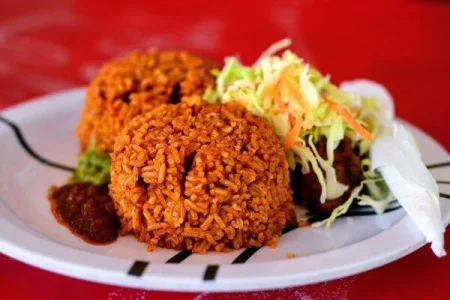
Nigeria's food inflation continues to rise, impacting everyday meals like jollof rice. The cost of making a pot surged 5.1% from June to September, driven by rising prices of essential ingredients such as tomatoes, peppers, and rice, alongside high energy costs, flooding, and transportation issues.
As food inflation continues to soar in Nigeria, the cost of preparing one of the country's most beloved dishes—jollof rice—has increased significantly. A recent report, Crisis On The Menu: The SBM Jollof Index Q3 2024, reveals that the price to cook a pot of jollof rice surged by 5.1%, rising from N20,274 in June to N21,300 in September.
The rising costs of key ingredients like tomatoes and peppers, which spiked by over 300% in June, have only slightly eased in recent months. While some markets saw slight reductions, overall inflationary pressures persist, pushing the price of jollof rice higher. In August, the average cost of making the dish increased by N390, and by September, it had climbed further by N1,181.
Despite efforts by the government to combat food inflation—such as distributing 600,000 bags of rice at a subsidized price—costs remain high. A 50kg bag of rice, which was priced at around N85,000 in July, increased to N100,000 by September. Meanwhile, the price of other staple food items and energy sources, including cooking gas, fuel, and electricity, has also risen, exacerbating the financial strain on Nigerian households.
Natural disasters, including the collapse of the Alan Dam and widespread flooding across 29 states, have worsened food security. The flooding, which affected over a million people and devastated farmlands in key agricultural regions, has further contributed to food scarcity and the rising cost of basic ingredients.
While some markets, like Onitsha and Kano, saw slight decreases in jollof rice prices, other regions, such as Abuja’s Nyanya and Wuse II markets, experienced sharp increases—up to 29.5% in Nyanya. This fluctuation in prices highlights the complex dynamics of Nigeria's food inflation crisis, driven by local supply chain disruptions, rising transportation costs, and ongoing insecurity.
As Nigerians continue to grapple with the affordability of essential food items, the impact of inflation on everyday meals like jollof rice reflects a broader economic struggle for many families.




